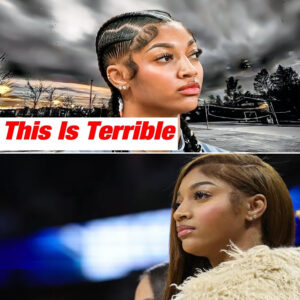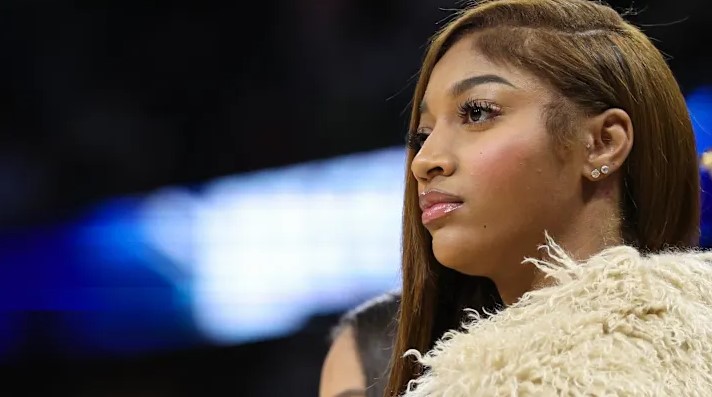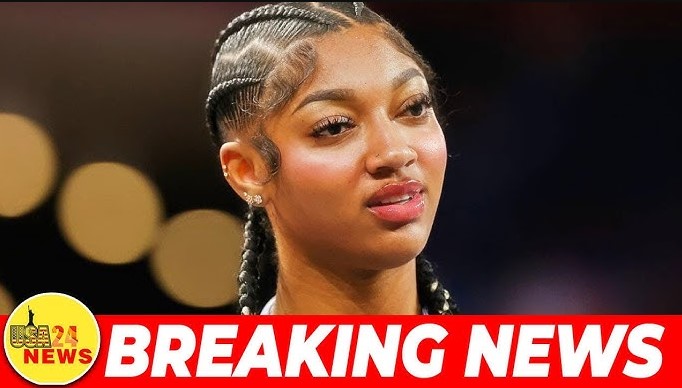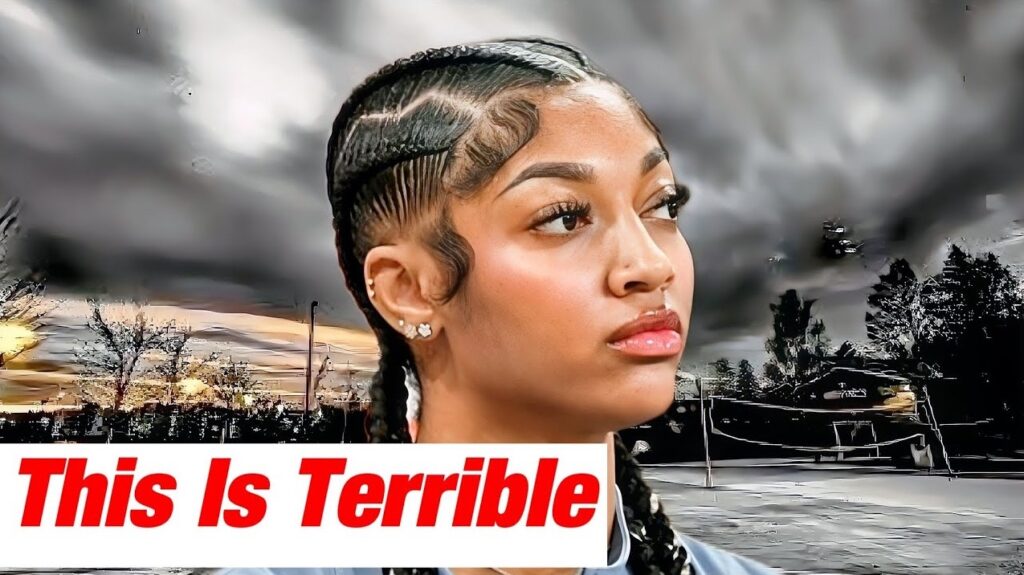WNBA Star Angel Reese Shocks Fans: “My $73,000 Salary Can’t Cover Daily Bills”
The world of professional women’s basketball was rocked when Chicago Sky forward Angel Reese made a stunning revelation that her $73,000 WNBA salary is insufficient to cover her basic living expenses, sparking intense debate about pay equity in professional sports. The 22-year-old rising star’s candid admission during an Instagram Live session exposed the harsh financial realities facing even the most talented players in women’s basketball, highlighting a stark contrast between public perception and actual earning potential in the WNBA.

During her revealing social media broadcast, Reese explained that her monthly rent alone costs $8,000, which translates to $96,000 annually, significantly exceeding her entire WNBA salary before taxes and other deductions. “I just hope people know that the WNBA don’t pay my bills at all,” Reese stated bluntly, adding that she doesn’t believe her salary could even cover one of her major monthly expenses, let alone support a comfortable lifestyle.
The timing of Reese’s disclosure proved particularly significant as it coincided with ongoing collective bargaining negotiations between WNBA players and league officials, with athletes demanding more equitable compensation structures. During the recent All-Star Game weekend, players including Napheesa Collier, Allisha Gray, Kelsey Plum, and Kelsey Mitchell wore black t-shirts emblazoned with “Pay us what you owe us” during warm-ups, demonstrating their unified stance on the salary dispute.
The current WNBA Collective Bargaining Agreement allows players to earn up to 25% of league profits, but only if the league meets specific annual revenue targets, a structure that pales in comparison to the NBA where players receive 50% of total revenue regardless of performance benchmarks. This disparity becomes even more glaring when considering that rookie contracts in the WNBA start at approximately $72,000, while maximum salaries cap at around $252,000 for superstars like Las Vegas Aces’ Jackie Young.

Reese’s financial struggles extend beyond her WNBA salary, as she admitted to “living beyond my means” despite her professional athlete status, revealing the uncomfortable truth about the economic challenges facing women’s professional basketball players. Her monthly expenses, including the $8,000 rent, car payments, food, and other necessities, far exceed what her basketball salary can realistically support, forcing her to rely heavily on endorsement deals and other revenue streams to maintain her lifestyle.
However, the young star has found alternative income sources that have dramatically improved her financial situation, particularly through her participation in the new 3-on-3 basketball league called Unrivaled. This innovative league offers some of the highest salaries in women’s sports history, with average compensation reportedly around $220,000, nearly matching the WNBA’s maximum base salary, and Reese has expressed gratitude for the opportunity to earn six figures over just three months of play.
The broader implications of Reese’s revelation extend far beyond individual financial concerns, as they illuminate systemic issues within women’s professional sports that continue to undervalue female athletes despite growing popularity and viewership. Her transparency has sparked conversations about whether current WNBA salary structures adequately reflect the skill, dedication, and entertainment value that players bring to the league, especially as women’s basketball continues to gain mainstream attention and commercial success.

Critics and supporters have engaged in heated debates across social media platforms, with some questioning how someone earning $73,000 annually can claim financial hardship while others defend Reese’s right to fair compensation commensurate with her professional status and marketability. The controversy has also highlighted the often-overlooked expenses that professional athletes face, including training costs, equipment, travel, and maintaining the physical conditioning required for elite competition.
Looking ahead, Reese’s bold statements may serve as a catalyst for meaningful change in how women’s professional sports leagues structure player compensation, potentially influencing future collective bargaining agreements and sponsorship deals. Her willingness to speak openly about financial struggles, despite potential backlash, demonstrates the courage required to challenge existing systems and advocate for better conditions for current and future generations of female athletes in professional basketball and beyond.
